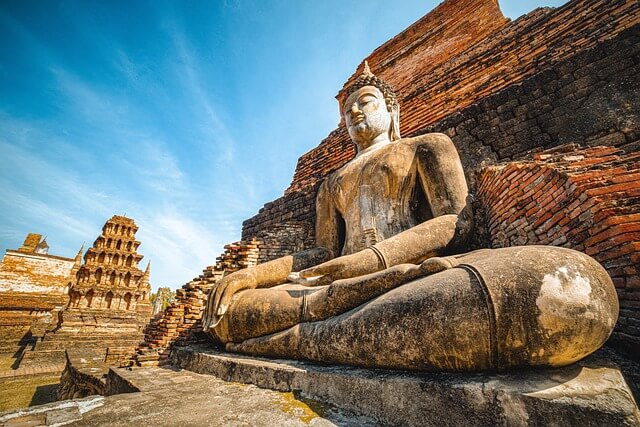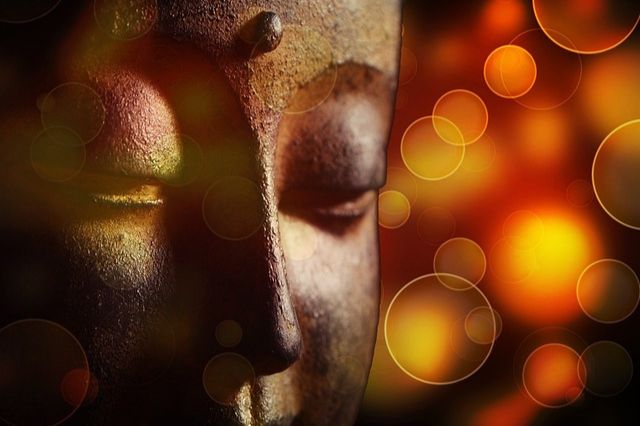Exploring the Depths of Spiritual Teachings: Unveiling Inner Wisdom
Dive into the captivating world of spiritual teachings with our in-depth exploration. Discover how these timeless principles, rooted in ancient wisdom, transform our daily lives. From understanding compassion and empathy to applying mindfulness in the modern world, this article offers unique insights into balancing the material and the spiritual, and how the lessons from great spiritual masters can enlighten our personal paths. Get ready for an uplifting journey!
What Are the Core Principles of Spiritual Teachings?

Explore the foundational elements of spiritual teachings in this enlightening section. Delve into the core principles that have guided seekers through ages, from ancient wisdom to modern interpretations.
Discover how these teachings offer profound insights into compassion, mindfulness, and the pursuit of inner peace. We’ll examine their relevance in today’s fast-paced world and how they can transform personal growth and understanding.
Understanding the Universality of Spiritual Truths

At the heart of spiritual teachings lies a compelling universality, transcending cultural, temporal, and geographical boundaries. These teachings often converge on fundamental truths about human existence, consciousness, and the deeper meaning of life.
Universally, they speak to our innate longing for connection, understanding, and purpose, echoing across various faiths and philosophies.
Central to these teachings is the concept of interconnectedness, suggesting that all life forms are intrinsically linked. This tenet encourages a sense of responsibility and compassion towards others and the environment, fostering a holistic view of the world.
Spiritual teachings often emphasize inner peace and harmony, advocating for meditation, mindfulness, and self-reflection as paths to achieve this state. These practices help individuals cultivate a deeper sense of self-awareness and understanding, leading to personal transformation and growth.
Moreover, these teachings propose the idea of transcendence, suggesting that one can rise above materialistic and superficial desires to reach a higher state of being. This notion often incorporates the belief in a higher power or greater reality, guiding individuals towards moral and ethical living.
Spiritual teachings serve as a guiding light in the pursuit of wisdom, providing timeless insights into leading a fulfilling and purposeful life. They encourage introspection, empathy, and a deeper connection with the world, resonating profoundly in our search for meaning.
The Role of Compassion and Empathy in Spiritual Growth

In the realm of spiritual development, compassion and empathy are not just virtues but foundational pillars. Deeply embedded in various spiritual teachings, these qualities are often seen as the essence of a spiritually mature individual.
Compassion, the empathetic understanding of others’ suffering coupled with a desire to alleviate it, is central to many faiths and philosophies. It’s a quality that transcends mere emotional response, embodying a proactive stance towards the betterment of others.
Empathy, the ability to understand and share the feelings of another, is a vital component of spiritual growth. It nurtures a profound connection with others, fostering a sense of unity and shared humanity. This quality is pivotal in developing a deeper understanding of the world around us, enabling us to perceive beyond our subjective experiences.
These qualities contribute significantly to personal transformation. By cultivating compassion and empathy, individuals often find a more profound sense of purpose and fulfillment. They become more attuned to the needs of others, paving the way for acts of kindness and altruism.
Compassion and empathy have a ripple effect in communities. They encourage a culture of understanding, tolerance, and support, essential elements for societal harmony and collective spiritual progress. In essence, these qualities are not just personal attributes but instruments for societal change, embodying the core spirit of spiritual teachings.
Balancing Material Life with Spiritual Aspirations

In the journey of self-discovery, balancing material pursuits with spiritual aspirations is a theme recurrent in many spiritual teachings. This equilibrium is not about renouncing worldly possessions or achievements; rather, it’s about harmonizing them with one’s inner growth and values.
A key aspect of this balance lies in mindfulness. By staying present and aware, one can engage with the material world without losing sight of spiritual goals. Mindfulness practices encourage a deeper appreciation for life’s simple pleasures, fostering contentment and reducing the incessant chase for material gains.
Integrating spirituality into daily life is also pivotal. It’s about seeing one’s actions, whether at work or in personal relationships, as opportunities for spiritual growth. This perspective transforms mundane tasks into meaningful experiences, aligning them with one’s higher purpose.
Moreover, many spiritual traditions emphasize the importance of service and generosity. Engaging in acts of kindness and sharing resources can bridge the gap between material abundance and spiritual fulfillment. Such actions not only benefit others but also enrich one’s own spiritual journey.
Ultimately, the quest for balance is deeply personal. It involves continuous introspection and adjustment, ensuring that one’s material pursuits do not overshadow spiritual development. It’s about finding a harmonious path where both aspects of life complement and enhance each other, leading to a more fulfilled and meaningful existence.
How Can Spiritual Teachings Transform Our Daily Lives?
Integrating Mindfulness in Everyday Activities

“Integrating Mindfulness in Everyday Activities” is a crucial aspect of living a spiritually enriched life. Mindfulness, a core component of many spiritual teachings, isn’t just a practice; it’s a way of being that can transform mundane tasks into moments of deep presence and awareness.
Incorporating mindfulness into daily routines begins with intention. It’s about cultivating an attitude of attention and care in everything we do, whether it’s eating, walking, or even engaging in conversation.
The beauty of mindfulness lies in its simplicity and accessibility. It doesn’t require special tools or environments; it simply asks for a shift in focus.
For instance, mindful eating involves savoring each bite, acknowledging the flavors, textures, and sensations, and expressing gratitude for the nourishment provided. Similarly, a mindful walk could mean noticing the rhythm of your steps, feeling the breeze, and observing the play of light and shadows around you.
These practices help anchor us in the present moment, reducing stress and enhancing our appreciation of life.
Mindfulness extends to our interactions with others. Listening attentively, speaking thoughtfully, and being fully present in conversations can deepen connections and foster understanding and empathy.
By weaving mindfulness into our daily lives, we align more closely with spiritual teachings. This alignment enhances our inner peace, enriches our experiences, and promotes a profound understanding of the interconnectedness of all things.
This approach to living not only benefits us individually but also contributes to a more conscious, compassionate world.
The Impact of Meditation on Mental and Emotional Health

“The Impact of Meditation on Mental and Emotional Health” is a vital aspect of spiritual teachings that emphasize self-awareness and inner peace. Meditation, a cornerstone of many spiritual practices, offers profound benefits for mental and emotional well-being.
Engaging in regular meditation leads to significant reductions in stress and anxiety. By focusing the mind and reducing the stream of jumbled thoughts, meditation can bring about a state of calmness and clarity.
This mental quietude not only alleviates stress but also enhances overall mood and emotional stability.
Moreover, meditation has been linked to improved concentration and attention. By training the mind to focus on a single point, be it breath, a mantra, or a visual object, practitioners develop greater mental discipline.
This heightened focus can spill over into daily life, enhancing productivity and the ability to engage in tasks with full attention.
Furthermore, meditation fosters a deeper connection with oneself. It allows individuals to explore their thoughts and feelings without judgment, leading to greater self-understanding and acceptance.
This introspection can be transformative, enabling emotional healing and personal growth.
Additionally, numerous studies suggest that meditation can be an effective tool in combating various mental health issues, including depression, anxiety disorders, and PTSD. By calming the mind, it provides a space for healing and resilience in the face of emotional challenges.
The integration of meditation into daily life aligns perfectly with the ethos of spiritual teachings, offering a pathway to mental and emotional harmony.
This practice is not just about achieving transient peace; it’s about cultivating a sustainable state of well-being that permeates every aspect of life.
Navigating Life’s Challenges with Spiritual Insights

In the journey of life, embracing spiritual insights can be transformative, especially when navigating challenges. This approach, deeply rooted in spiritual teachings, offers resilience, understanding, and a profound sense of peace even amidst turmoil.
Firstly, spiritual wisdom teaches us the art of perspective. When faced with difficulties, viewing them through a spiritual lens can transform obstacles into opportunities for growth.
This shift in perspective helps in understanding the impermanent nature of life’s challenges, fostering resilience and adaptability.
Secondly, spiritual teachings often emphasize the importance of inner harmony and self-awareness. By cultivating a calm and centered inner self, individuals are better equipped to handle external pressures.
Practices such as meditation and mindfulness enhance this inner strength, providing a refuge during life’s storms.
Spiritual insights encourage empathy and compassion, not just towards others, but also towards oneself. This empathetic approach helps in navigating personal struggles with kindness and understanding, avoiding harsh self-judgment and fostering a nurturing inner dialogue.
Many spiritual traditions underscore the significance of community and shared wisdom. Seeking guidance and support from like-minded individuals can offer new perspectives and solutions to problems, reinforcing the idea that one is not alone in their struggles.
Incorporating spiritual insights into daily life empowers individuals to face life’s challenges with grace and resilience. It’s not merely about enduring hardships but about growing from them, transforming personal narratives, and evolving spiritually.
This holistic approach to life’s difficulties is a testament to the timeless relevance and transformative power of spiritual teachings.
What Are the Historical Contexts of Major Spiritual Teachings?
Tracing the Roots of Ancient Spiritual Wisdom

Tracing the roots of ancient spiritual wisdom reveals a tapestry rich with diverse teachings, each contributing to the complex mosaic of human spirituality. These age-old insights continue to shape contemporary spiritual practices and beliefs, offering timeless guidance and enlightenment.
The genesis of spiritual wisdom can often be found in ancient civilizations such as India, China, Egypt, and Greece. In India, the Vedas and Upanishads laid foundational philosophies that later evolved into various Eastern spiritual paths, including Hinduism and Buddhism.
These texts delve into the nature of reality, the self, and the universe, offering profound insights into human existence.
Similarly, Chinese spiritual heritage, with texts like the Tao Te Ching, emphasizes harmony with the Tao, or the fundamental nature of the universe. This philosophy promotes a life of simplicity, humility, and compassion, principles that resonate deeply in today’s search for meaning.
Ancient Egyptian spirituality, rich in myth and ritual, focused on the journey of the soul and the afterlife. Their beliefs and practices, documented in texts like the Book of the Dead, emphasize moral integrity and the eternal nature of the soul.
The Greeks, through the works of philosophers like Plato and Aristotle, explored concepts of virtue, the good life, and the pursuit of knowledge. Their philosophies laid the groundwork for Western spiritual thought, influencing Christianity and modern philosophical inquiries.
These ancient teachings offer a window into the spiritual inquiries of our ancestors, addressing fundamental human questions that remain relevant today.
They provide a wellspring of wisdom for those seeking to understand the deeper aspects of life and the spiritual path, underscoring the enduring power and relevance of ancient spiritual teachings.
The Evolution of Spiritual Teachings Across Cultures

The evolution of spiritual teachings across cultures represents a rich tapestry of human thought and belief, reflecting the diversity and depth of our quest for understanding life’s profound mysteries.
This journey of spiritual evolution, a cornerstone in the realm of spirituality, showcases the adaptability and resilience of these teachings as they traveled across time and geography.
In ancient India, the spiritual landscape was shaped by the Vedas and Upanishads, which explored the interconnectedness of life and the universe. These teachings evolved into various paths such as Hinduism and Buddhism, each offering unique perspectives on enlightenment and liberation.
Meanwhile, in the Middle East, Abrahamic religions like Judaism, Christianity, and Islam emerged, each with its unique spiritual narrative and emphasis on monotheism. These faiths emphasized moral laws, divine revelation, and the relationship between God and humanity.
In East Asia, spiritual teachings took a different turn with philosophies like Taoism and Confucianism in China, which stressed living in harmony with the Tao (the Way) and the importance of moral virtues, respectively.
Similarly, Shintoism in Japan focused on the sacredness of nature and ancestral worship.
The indigenous spiritualities of the Americas, Africa, and Australia, though diverse, shared common themes of reverence for nature, ancestral spirits, and a deep connection to the land and its cycles.
In contemporary times, these varied spiritual teachings have intertwined, leading to a global spiritual milieu. Interfaith dialogues, the rise of New Age spirituality, and the integration of science and spirituality reflect this dynamic evolution.
Today, spiritual teachings continue to adapt, influenced by social, environmental, and technological changes, ensuring their relevance in a rapidly evolving world.
This continuous evolution of spiritual teachings across cultures underscores their fundamental role in shaping human understanding and connection, reflecting our collective journey towards spiritual fulfillment and enlightenment.
Lessons from Spiritual Leaders Throughout History

Throughout history, spiritual leaders have imparted wisdom that transcends time and cultural boundaries, offering insights central to our understanding of spirituality. These teachings, rooted in diverse traditions, provide invaluable lessons for contemporary seekers of spiritual growth.
Buddha, the enlightened one, taught the Four Noble Truths and the Eightfold Path, emphasizing mindfulness, ethical living, and the pursuit of Nirvana. His teachings encourage introspection and compassion, advocating a middle way between extreme indulgence and asceticism.
Jesus Christ’s teachings, encapsulated in the Sermon on the Mount, emphasize love, forgiveness, and humility. His parables and life exemplify sacrificial love and service, inspiring millions to seek a deeper spiritual connection with God.
In Islam, Prophet Muhammad’s life and sayings (Hadiths) emphasize submission to Allah, compassion towards the needy, and the importance of community (Ummah). His teachings promote a balance between spiritual devotion and worldly responsibilities.
Hindu sages like Adi Shankaracharya and Swami Vivekananda have offered profound insights on the nature of reality, the self, and Brahman (universal consciousness). Their teachings explore the paths of devotion (Bhakti), knowledge (Jnana), and action (Karma).
Indigenous spiritual leaders across various cultures have always highlighted the sacredness of nature and the interconnectedness of all life, offering a holistic worldview that respects and preserves the natural world.
These leaders and their spiritual teachings have shaped philosophies, ethical systems, and ways of life, guiding individuals in their quest for meaning, purpose, and inner peace.
Their timeless wisdom continues to inspire, offering pathways to personal transformation and deeper understanding of the universal truths that bind us all.
How to Apply Spiritual Teachings in Modern Society?

Spiritual Teachings in the Age of Technology
In this digital era, spiritual teachings are undergoing a transformative shift, integrating with technology to reach a broader audience. This fusion has led to a unique blend of ancient wisdom and modern innovation, making these teachings more accessible than ever before.
Digital platforms have democratized the access to diverse spiritual philosophies, breaking down geographical and cultural barriers. Online courses, virtual meditation sessions, and spiritual podcasts have become popular, allowing people to explore and practice spirituality from the comfort of their homes.
Social media has emerged as a potent tool for spreading spiritual messages, creating communities that span continents. Hashtags and online campaigns on mindfulness, gratitude, and compassion have become viral, influencing the digital generation’s approach to spirituality.
Technology has also facilitated the preservation and dissemination of ancient spiritual texts. Digitization projects have made rare manuscripts and teachings available to researchers and spiritual seekers worldwide, ensuring that this precious knowledge is not lost to time.
Virtual reality (VR) and augmented reality (AR) are being used to simulate spiritual experiences, offering immersive journeys to sacred sites or visualizations for meditation practices. This technological advancement bridges the gap between physical and spiritual realms, providing profound experiences that were once limited to specific locations or groups.
However, this integration also poses challenges, such as ensuring the authenticity of teachings and avoiding the commercialization of spiritual practices. As we navigate spirituality in the age of technology, it’s vital to maintain the essence and integrity of these teachings, ensuring they continue to guide and enlighten individuals in their spiritual journey.
Creating Community and Connection Through Spirituality

In the realm of spiritual teachings, community and connection play pivotal roles. These teachings often emphasize the importance of building relationships and fostering a sense of belonging, transcending physical and cultural boundaries to unite individuals in their spiritual quests.
The power of spirituality in creating community lies in its ability to speak to the universal aspects of human experience. Regardless of background or belief system, many find common ground in the pursuit of deeper understanding, compassion, and personal growth.
This shared journey forms the foundation of spiritual communities.
In today’s world, technology has revolutionized how these communities are formed and maintained. Online forums, social media groups, and virtual gatherings have allowed for the creation of diverse and inclusive spiritual networks.
These digital spaces offer support, learning, and a sense of belonging, connecting individuals from various parts of the world who might otherwise never meet.
Furthermore, local spiritual groups and centers continue to play a significant role. They provide a physical space for individuals to engage in communal practices such as meditation, worship, and discussion.
These gatherings often foster deep, meaningful connections, offering a supportive environment for personal and collective spiritual growth.
Through shared experiences and teachings, spiritual communities cultivate empathy, understanding, and a collective vision for a more compassionate world. These connections not only enhance individual spiritual journeys but also contribute to a greater sense of unity and purpose in society.
As we continue to explore the vast landscape of spirituality, the creation of community and the nurturing of connections remain at the heart of these teachings, guiding us towards a more interconnected and spiritually enriched life.
Sustainable Living and Environmental Consciousness
In the tapestry of spiritual teachings, sustainable living and environmental consciousness emerge as key threads. These principles are not just about protecting the earth; they represent a profound connection with our environment, recognizing it as a sacred space that sustains and nurtures life.
Spiritual teachings across various traditions emphasize the importance of living in harmony with nature. This alignment not only respects the planet but also cultivates inner peace and balance.
It encourages a lifestyle where consumption is mindful, resources are valued, and actions are taken with consideration for future generations.
Adopting sustainable practices becomes a spiritual act, a way to express gratitude and reverence for the natural world. This might manifest in simple daily choices like reducing waste, opting for eco-friendly products, or supporting sustainable initiatives.
It also involves a deeper shift in consciousness, recognizing the interconnectedness of all life and understanding that our individual actions have a collective impact.
Moreover, spiritual teachings often advocate for a minimalist lifestyle, finding contentment in simplicity rather than material accumulation. This approach not only reduces environmental impact but also frees individuals from the cycle of endless consumption, leading to a more fulfilling and purpose-driven life.
By intertwining environmental consciousness with spiritual growth, individuals can contribute to a more sustainable world while embarking on a meaningful journey of self-discovery and connection with the universe.
This alignment of spiritual and environmental values not only enhances personal well-being but also paves the way for a more conscious and sustainable world.







